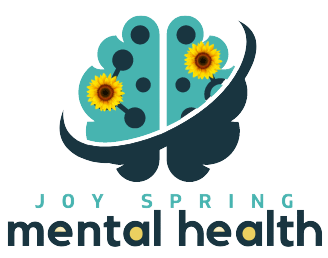Injury is an extremely excruciating encounter that influences individuals on various levels: intellectually, genuinely, and actually. Albeit the close-to-home and mental parts of injury are broadly perceived and inspected, the significant impacts of injury on the human body are frequently underrated or overlooked. This article explains how the body’s physiological responses to traumatic events can have long-lasting effects and the complicated relationship between trauma and the body.
The Body’s Quick Reaction to Injury
When confronted with misfortune, the body’s most memorable sense is to make due. This reaction is frequently called the “instinctive reaction” and includes the arrival of stress chemicals like adrenaline and cortisol into the circulatory system. These chemicals set up the body for quick activity by expanding pulses, further developing sharpness, and expanding actual energy.
Albeit this reiteration can save lives in the midst of peril, it can negatively affect the body whenever rehashed over a significant stretch of time or over an extensive stretch of time. Many individuals who have encountered injury report actual side effects, for example, expanded pulse, muscle strain, and sharpness during and after the awful mishap.
The Collective Impacts of Injury on The Body
One of the most unsettling parts of injury is that it can accumulate after some time, prompting ongoing actual medical conditions. Long-term openness to push chemicals can prompt medical conditions, including hypertension, cardiovascular infection, and a debilitated, invulnerable framework. Moreover, a tenacious condition of hypervigilance can prompt unsettling influences, stomach-related issues, and persistent torment.
Furthermore, injury debilitates the body’s capacity to control its own pressure reaction. This can prompt expanded close-to-home aversion to stressors and an improved probability of encountering tension, fits of anxiety, and other pressure related messes. Individuals who have encountered injury may likewise have a diminished capacity to adapt to everyday pressure, making keeping up with general wellbeing a test.
The Job of the Physical System
The autonomic sensory system assumes a significant part in how the body responds to injury. There are two branches to it: the thoughtful sensory system and the parasympathetic sensory system. The thoughtful sensory system is liable for the “instinctive” reaction, while the parasympathetic sensory system advances unwinding and recuperation.
Following injury, the thoughtful sensory system can become hyperactive, keeping the body in a steady condition of sharpness. This can prompt side effects, for example, expanded pulses, hypervigilance, and an expanded surprise reaction. On the other hand, the parasympathetic sensory system, which is liable for unwinding and mending, can turn out to be less dynamic, making it hard for people to encounter a feeling of quiet and security.
The Effect on the Mind
Injury additionally essentially affects the mind. This can upset ordinary cerebrum capability, particularly in regions liable for memory, profound guidelines, and navigation. The amygdala, the piece of the cerebrum related with handling feelings, can become overactive, prompting uplifted profound reactions and expanded helplessness to temperament problems like discouragement and nervousness.
Moreover, injury can influence the hippocampus, a mind structure significant for memory combination. Individuals who have encountered injury might have memory issues, including trouble recalling explicit subtleties of the horrendous mishap or trouble framing new recollections. This can influence their capacity to work really hard in their day-to-day existence.
The Long-Term Response of the Body can have long-lasting effects of Trauma on the body even years or decades after the initial event. The ability of the body to store physical sensations and reactions associated with trauma is known as “body memory,” one of these phenomena. These sentiments can be set off by apparently inconsequential upgrades and can prompt profound and actual pressure.
For instance, an individual who has been in a fender bender might encounter heart palpitations and windedness when they hear screeching tires or see comparative vehicles despite the fact that there is no impending risk. These actual responses are the aftereffects of the body’s memory of the horrendous accident and can be challenging to control or adapt to.
Attention to Injury’s Effect on the Body
Perceiving the significant effect of injury on the body is the most important move towards recuperating and recuperation. Fundamental individuals who have encountered injury look for help and care that tends to both the close-to-home and actual parts of their injury.
Trauma-focused cognitive behavioral therapy (TF-CBT), eye movement desensitization and reprocessing (EMDR), and somatic experiencing all aim to assist patients in processing traumatic memories and releasing body tension. These methodologies can advance a sense that everything is safe and secure while unwinding and assist with reestablishing harmony in the autonomic sensory system.
Consolidating mind-body practices like yoga, reflection, and profound breathing activities can likewise be useful for injury survivors. These practices can help individuals reconnect with their bodies, diminish pressure, and advance, generally speaking, prosperity.
Moreover, it is fundamental to see a specialist in the event that you are encountering actual side effects connected with injury, like constant torment or rest aggravations. Specialists can offer medicines and treatments to address these side effects and work on the general soundness of injury survivors.
Conclusion:
Injury is a complex, diverse experience that significantly affects both the psyche and body. Understanding the mind-boggling connection between injury and the body is basic for individuals who have encountered injury, as well as the people who offer help and treatment. By tending to the actual results of injury and executing all-encompassing ways to deal with mending, we can attempt to assist injury survivors with recovering command over their lives and prosperity. It is fundamental to perceive that mending from injury is an excursion, and with the right help and assets, recuperation is conceivable.


